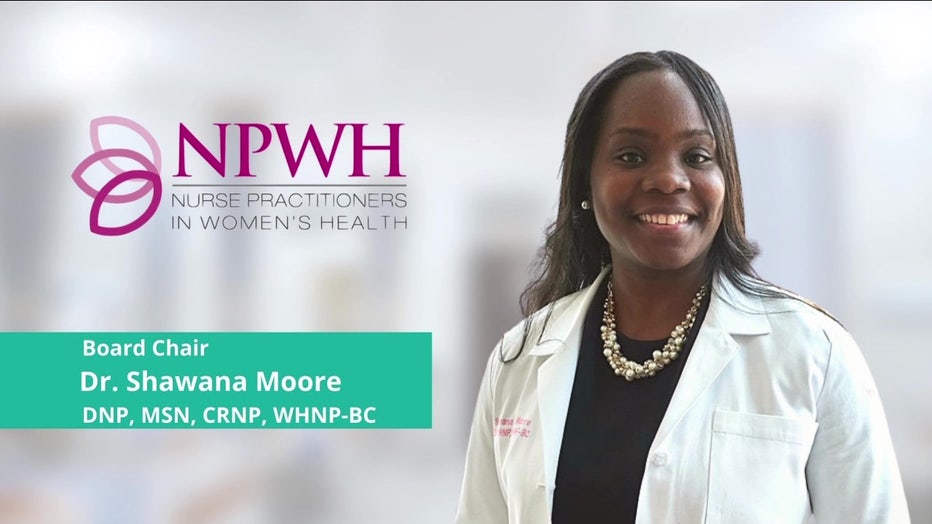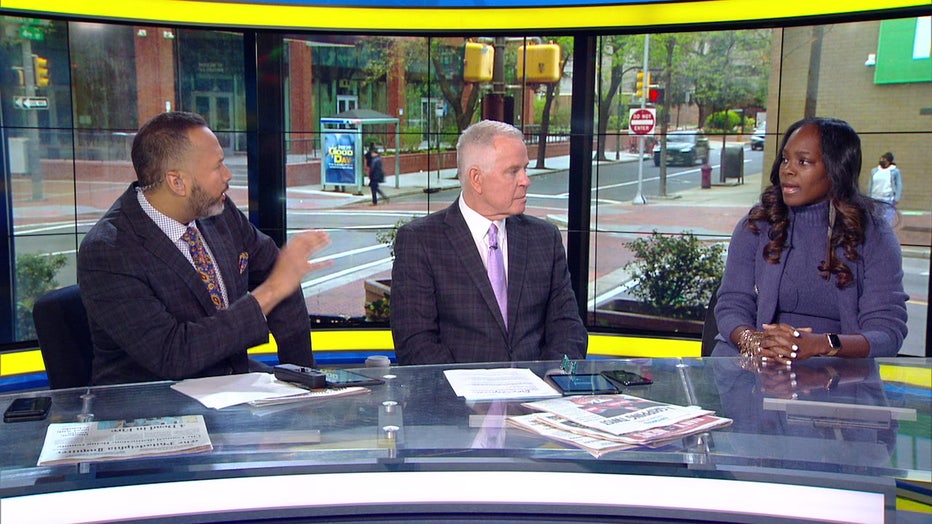From doctor to patient: Dr. Moore helps pregnant black women advocate for themselves

Pregnancy-related deaths are rising in the US, especially for black women
Dr. Shawana Moore highlights the importance of nurse practitioners in advocating for black maternal health.
PHILADELPHIA - Dr. Shawana Moore was 38 weeks pregnant when she found herself in the emergency room when she found herself suddenly becoming the patient.
When Moore first became pregnant, she told her doctors her family had a history of preeclampsia and high blood pressure. She says they brushed her off and told her she would be fine - until she developed severe preeclampsia 38 weeks into her pregnancy,
Moore was rushed straight to the ER to give birth to her son. However, she says it was during her hospital stay afterwards that she truly experienced implicit bias.
"Bells and whistles were going off," she said. "My husband looked shocked and afraid not knowing what was going on. Nobody came into the room."

Dr. Shawana Moore
It wasn't until one of her former students who worked at the hospital stepped up and advocated for her.
"Proved to me that day that we teach in the classroom translates to clinical practice," Moore said.
Now, Moore is the board of chair of Nurse Practitioners in Women's Health, an organization that highlights the importance for nurse practitioners to advocated for black maternal health.
"All of us have implicit bias, regardless of what profession we're in."
MORE HEADLINES:
- Caught on camera: Man punched by bouncer outside Center City bar dies from his injuries, police say
- Philadelphia schools return to mask optional status after health officials drop mandate
- 1 man shot multiple times, another struck with stray bullet in North Philadelphia shooting
However, Moore does believe we are heading in the right direction. She says the first step is acknowledging our biases, then making the effort to address them.
"That's the beauty of it. Because we've learned it over time, we can unlearn it," Moore said.

Dr. Shawana Moore talks on Good Day Philadelphia
Health care should be the same for every person, despite profession, title or what someone looks like, Moore says.
She hopes her organization can help black women advocate for themselves by using their voices, while also making sure health care professionals listen.

